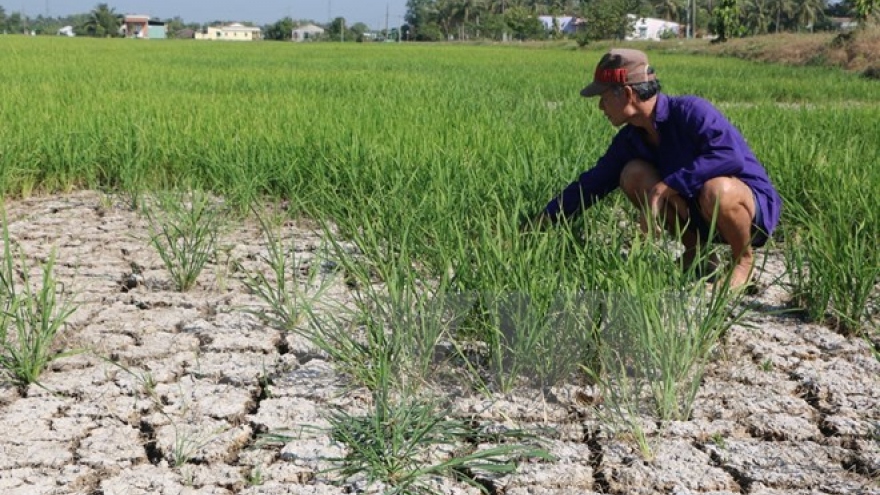Mekong Delta faces worsening land subsidence
The Mekong Delta region has been facing worsening land subsidence, which has been compounded by the prolonged drought in the region this year.
 |
The increasingly serious land sinkage and landslides in the region are most clearly seen in the southernmost province of Ca Mau. Landslides have taking place at 87 canals for a total length of 18 kilometres and cracks have appeared on around 1,000 kilometres of roads that are in a high danger of subsidence.
In Kien Giang, Ca Mau’s neighbouring province, a buffer zone in Minh Thuan and An Minh Bac communes in U Minh Thuong district has 49 houses destroyed by land sinking, and 11 others developing cracks and facing collapse.
Landslides happened at 11 points with a total length of 350m on provincial road 965. Another eight points face landslide risks.
In order to figure out the reason behind the land sinkage and landslides, the Ministry of Agriculture and Rural Development dispatched a team to the region.
According to the initial assessment from the team, drought already weakened land that suffers pressure from construction and traffic is the main reason behind widespread land-sinking and landslide.
According to the Mekong River Commission, hydroelectricity dams in the upper stream of the Mekong River keeping most of alluvium with an estimate of 65.5 billion cu.m of sediment by 2030 is also a reason leading land loss.
Prof. Dr. Nguyen Ngoc Tran, former deputy chairman of the National Assembly’s Committee for External Relations and senior expert of the Council for National Science and Technology Policy, said the impact of dams to sediment in the Mekong River is tremendous and once all dams go into operation, from one-third to half of the total sediment running down to the Mekong River basin will be retained and that will lead to changes in the topography of the river, river-bed, river-bottom and estuary, and land sinking.
The overexploitation of underground water is the other reason contributing to land sinking and landslide.
According to Nguyen Van Tranh, Deputy Director of the Ca Mau Department of Agriculture and Rural Development, up to 90 percent of people in Ca Mau are exploiting underground water for daily and production use.
At the Mekong Delta Forum 2016, Prime Minister Nguyen Xuan Phuc asked regional provinces to have the dyke and reservoir planning in a safe and convenient for agriculture and production manner while taking measures to restore coastal mangrove forests.



